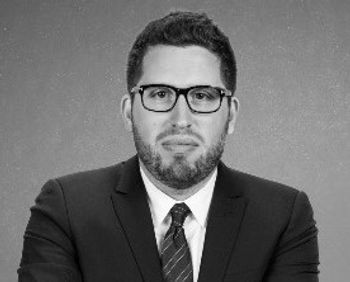MARSCHALL: An obituary for Cazenovia College, my hometown school
Due to close in May 2023 after 199 years in operation, Cazenovia College was my first academic employer and also the school located in my Upstate New York hometown.
Campus Reform Editor in Chief Zachary Marschall holds a PhD in Cultural Studies from George Mason University and is an adjunct professor at the University of Kentucky.
--------------------------------------------------------------------------------------
Cazenovia College, a small, picturesque school outside of Syracuse, New York, is shutting down after nearly 200 years in operation due to severe financial circumstances.
I grew up in the Village of Cazenovia and my first college teaching position was at Cazenovia College. The school’s approaching closure at the end of the spring 2023 semester is a huge loss for the local community.
For the rest of the country, Cazenovia College exemplifies trends and data points that have plagued academia since COVID-19. At the time of the closure announcement in December, the College’s enrollment was down 40% from its peak after it spent large sums on “technology and campus safety measures.” Between 2020 and 2022, American colleges and universities experienced a 3.5% total decline in enrollment, largely driven by the pandemic.
Founded in 1824 as a Methodist seminary, Cazenovia College subsequently evolved into a non-sectarian junior and women’s college before becoming a co-educational bachelor’s-degree-granting institution in 1988. The college also boasts Stanford University founder Leland Stanford as an alumnus, local news outlet Syracuse.com recently reminded its readers.
At Cazenovia, I taught academic writing in a team-teaching environment as one of about six instructors helping freshmen learn fundamental reading, rhetorical, and critical thinking skills. The curriculum was designed to help students analyze texts and generate original arguments.
It is not enough to simply be against something, to only point out flaws, I told the students. Critique, as part of critical thinking, should rather serve as the first step to generating new ideas, and proposing solutions.
This lesson also applies to national conversations about higher education.
There is much to criticize in academia, especially because institutional problems affect students’ academic success, which in turn has broader cultural and political implications for the country.
But higher education will never improve through criticism alone. Its ills must be cured with new solutions, programming, and curricula that prepare students holistically for the real world. Those alternatives require new ideas, productive conversations, and the ability to identify what works.
Many Cazenovia College students came from underprivileged backgrounds in rural and urban communities, as well as a diverse range of ethnic backgrounds. But a significant number of them also entered college needing to close an academic skills gap they acquired during high school. As a result, my teaching team focused on core writing techniques, grammar, and the need to work diligently.
As editor in chief of Campus Reform, I am acutely aware that while these values are foundational for the mission of higher education, they longer characterize what college is for students across America.
The professional instinct to prepare students as much as possible for life after graduation was present on the Cazenovia College campus in a way I have not seen at other schools.
My Academically Speaking editorial series in this publication is highly critical of several trends and issues in higher education, but my overarching critique is merely the first step to a solution: That academia needs to return to the fundamentals of a traditional liberal arts education.
The new ideas and conversations we need in academia must focus on reinstituting rigorous expectations for students to master core disciplinary skills and acquire an appreciation for hard work.
Colleges do their job when they teach students to expect more from themselves.
During my teaching experience, I felt Cazenovia College guided students in the right direction. It’s a shame there is now one less college doing that.
--------------------------------------------------------------------------------------
Editorials and op-eds reflect the opinion of the authors and not necessarily that of Campus Reform or the Leadership Institute.

